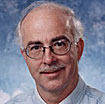Commentary on Psalm 29
From one perspective, it may seem that the poet who composed Psalm 29 was an ancient version of what we might today call a storm-chaser.1
After all, the heart of Psalm 29 (verses 3-9) is an enthusiastic and extended report of a powerful thunderstorm that apparently formed over the Mediterranean Sea (verse 3) and that proceeded to crash onto the coast of Palestine and to make its way inland. The storm damage is in view in verses 5 and 9. It was result of high winds (verses 6, 8) that were accompanied by sharp lightning (verse 7) and the constant rumble of thunder, which is what is meant by “the voice of the LORD.”
Lord of the storm
Of course, the fact that the constant thunder is communicated by the seven-fold repetition of the phrase, “the voice of the LORD,” is an unmistakable clue that we are not really dealing with a weather report. This is theology, not meteorology. For the psalmist, the storm is a symbol not of the power of nature, but rather of the power and sovereignty of Israel’s God. Seven, the number of completeness, is significant. Israel’s God is completely powerful and ultimately sovereign. There can be no competing claims.
Competing claims
But we know that, in fact, there were competing claims in ancient Palestine. In particular, the Canaanite god Baal was acclaimed to be the cloud-rider, the lord of the storm, the one who brought the rain that made the crops grow. And we know too that the people of God were tempted to give Baal the credit for the land’s productivity (see Hosea 2:8-13). Given this situation, it is clear that Psalm 29 has a polemical edge. The true lord of the storm — the real power in and behind the universe — is the LORD, not Baal.
Of course, the literary framework of verses 3-9 also makes it quite clear that we are dealing with theology. Characteristic of a song of praise, Psalm 29 begins with an invitation to praise (verses 1-2). What is unusual is the addressee, which is normally a human audience. But here, “heavenly beings” or “sons of gods” (NRSV note) are invited to praise the LORD. These could be members of the heavenly court, God’s divine council (see 1 Kings 22:19; Job 1:6); but given the polemical cast, it is quite possible that these “heavenly beings” represent the deposed members of the Canaanite pantheon. What the “heavenly beings” are called upon to recognize and celebrate is God’s “glory and strength” (verse 1), elsewhere attributes of royalty. In short, whoever the “heavenly beings” are, the effect of verses 1-2 is to invite the universal, cosmic acknowledgment of God’s sovereignty. Later in the Psalter, the nearly exact invitation will be issued to the “families of the peoples” (Psalm 96:7). Like Psalm 96 and the others in the collection to which it belongs (Psalms 93, 95-99), Psalm 29 is generally categorized as an enthronement psalms — that is, God’s kingship is explicitly in view.
The cosmic sovereign and comprehensive well-being
Given the invitations to praise in verses 1-2, it is clear from the outset that the poetic description of the thunderstorm in verses 3-9 is meant to offer evidence of God’s sovereignty. And the evidence is convincing! Just as they have been invited to do, “in his temple all say, ‘Glory!’” (verse 9). Is this the earthly temple in Jerusalem, or the cosmos construed as God’s dwelling? A similar ambiguity exists in Psalm 150:1, and the answer to our question is probably both. That is, the psalmist envisions earthly worshippers in Jerusalem and “heavenly beings” joined in praise to proclaim God’s universal, cosmic sovereignty.
Lest there be any doubt about the meaning of the exclamation “Glory!” (verse 9), verses 10-11 offer an explicit explanation, “The LORD sits enthroned over the flood” (verse 10). Again, of course, this is not a weather report. “The flood” symbolizes the chaotic waters (see Genesis 1:2) that God has tamed and ordered, and it is precisely this creative power that marks the LORD “as king forever” (verse 10).
The duty of kings in the ancient Near East was to protect, provide for, and empower their people (see Psalm 72 for a job description of the Judean king); and God as king is requested to do exactly that in verse 11. The Hebrew shalom in verse 11 (see Psalm 72:3, 7) is the final word of the psalm, and it represents the ultimate goal of both human and divine kingship — that is, the comprehensive well-being of the people.
Celebrating God’s claim today
What do we do with this ancient poem and its theo-poetic description of an event — a thunderstorm — that we almost certainly think about in exclusively meteorological terms? Let the poetry speak on its own symbolic level! True, we are not tempted to worship Baal as were the ancient Israelites. But there are all sort of other things to which we often attribute our blessedness and well-being — technological progress, the stock market, a capitalist economy, our own ingenuity and hard work. What difference might it make to recognize and celebrate God as the ultimate sovereign and origin of life and all that sustains it?
The “enthronement movement” and the Triune God
In conclusion, it might be helpful to not forget what might be called the “enthronement movement” — from glory proclaimed by “heavenly beings” to peace on earth. It probably sounds familiar. In the Gospel of Luke, this “enthronement movement” appears to interpret the significance of Jesus’ birth. In Luke 2:13, there is a “heavenly host, praising God and saying, ‘Glory to God in the highest heaven, and on earth peace among those whom he favors!’” In short, Luke interprets the birth of a baby as the very enthronement of God. This Holy Trinity Sunday is a good time to contemplate the good news that the cosmic creator and the baby in the manger are two of the three “persons” of the Triune God — that is, the character and purpose of these “persons” are one, and their work is mutually reinforcing. Such contemplation may lead us to the simple but extraordinarily far-reaching conclusion that God does indeed love the world (see John 3:1-17, the Gospel for the day).
Notes
1 Commentary first published on this site on May 31, 2015.


May 27, 2018